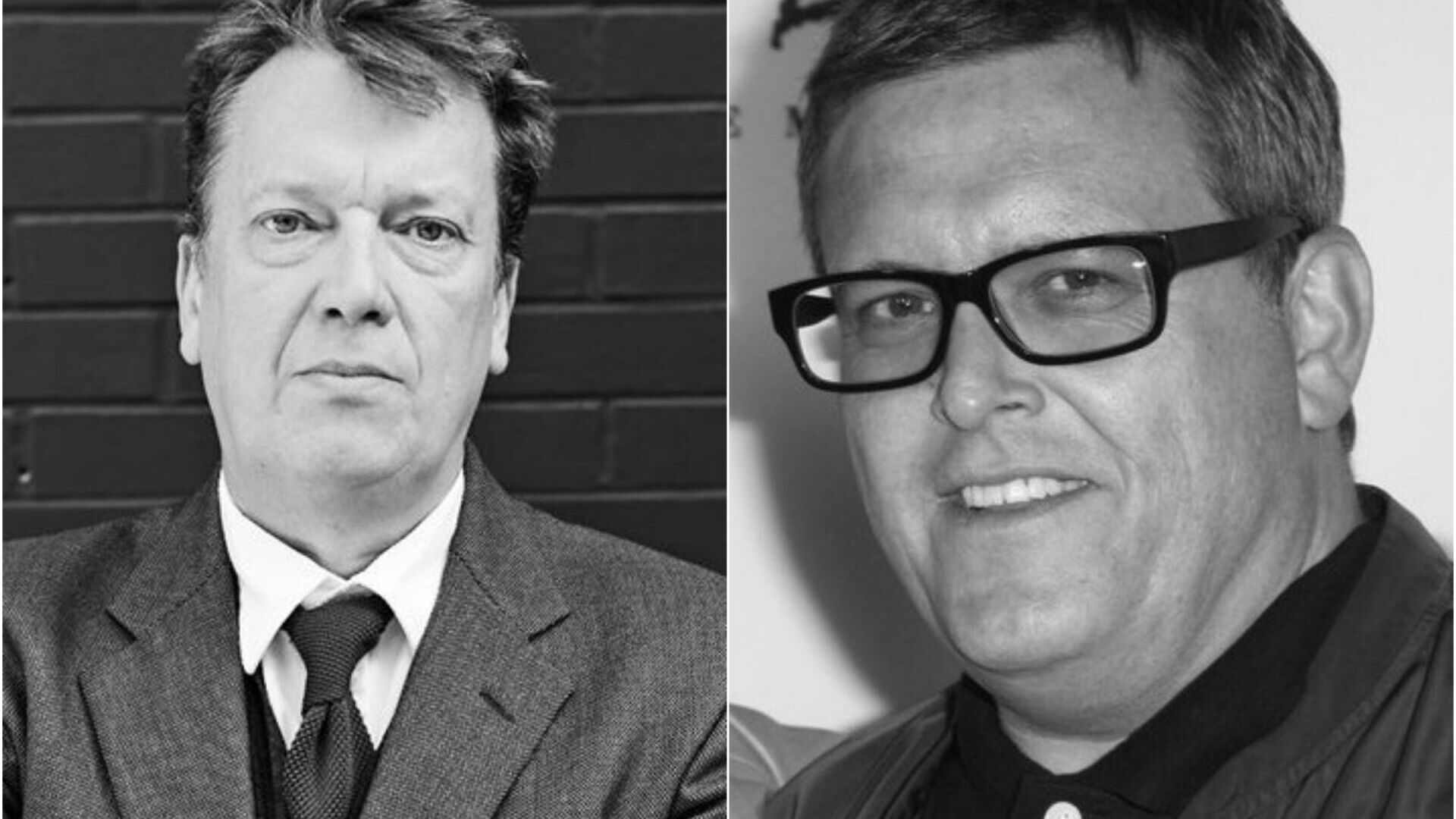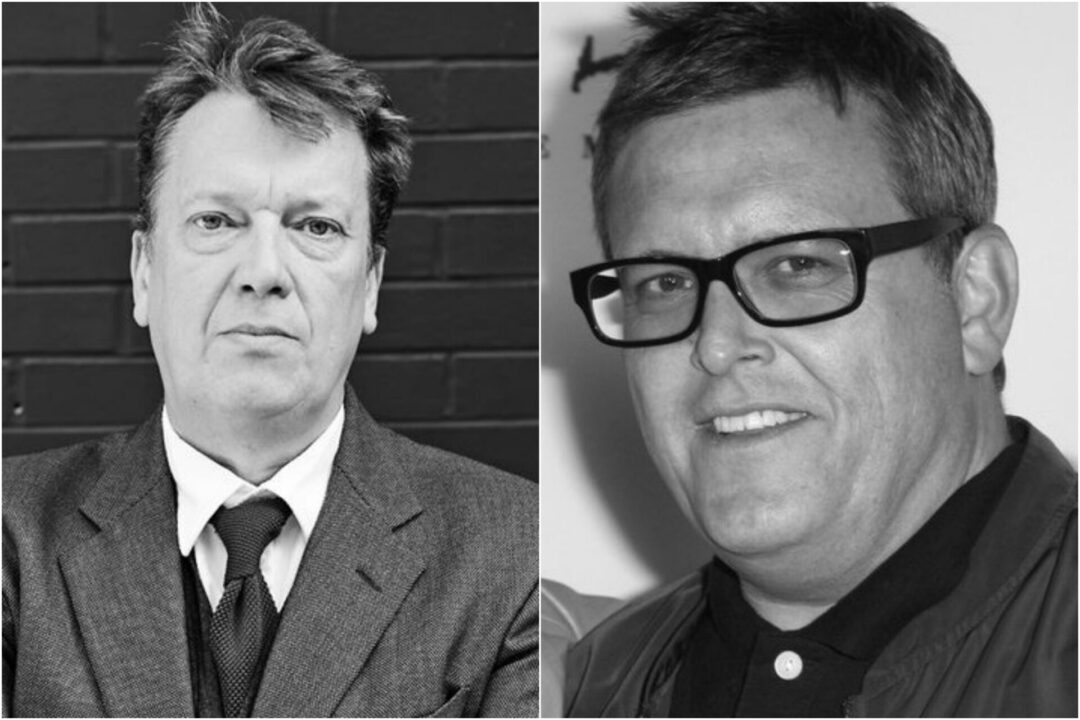“I know we sound identical,” says Llyod Stanton in a thick British accent at the start of our phone interview. “Maybe I’ll talk down here.” “Ah yes, a Michael Caine, if you will,” I reply. They laugh, and we’re off to a great start.
Lloyd Stanton and Paul Toogood are the directing duo behind the film Dying Laughing, a documentary that gives an introspective look into the struggles behind the laughs in stand-up comedy. Both lifelong fans of the art form, I had the opportunity to chat with the directors, who shed light on their favorite comedians, the importance of sharing your truth, and how social media can affect a stand-up’s future.
What makes the perfect joke?
PT: The jokes that work for me are the ones that work on several different levels. Louis C.K. is a perfect example. He tells an everyday story, [my favorite] is the one where he’s playing monopoly with his kids. It’s a really delicate take on the meaning of life, and it’s very funny.
LS: All the jokes that I find funny are so sick I would never mention them in an interview.
You gave the film a very interesting title– “Dying Laughing.” Usually, it’s the audience that is dying laughing but here it’s the stars themselves who experience a form of “dying” onstage that the audience is unaware of. What was your approach to the film?
LS: Yes, it’s an investigation into what we think is an undervalued and underloved art form. Now obviously lots of people are crazy about standup comedy, but we wanted to take a step back and really think about what these incredible people do. It’s actually really difficult, and we had heard from so many people about how difficult it was when they started out. Of course, when people do something really well, they often times make it look very easy. We learned it can take 10 years before you get any good at standup! Part of that process is developing as a human being and speaking your truth– this goes for all of us, not just comics– and that’s how you develop your voice as a human. They confront the painful parts of life and find a way to laugh at them.
PT: It’s a noble art. These people are the writer, director, and producer all at once and they don’t seem to have any [work] to support them when they’re not onstage, so it’s a frightening thing. They create an extraordinary bond with their audience, which takes on an almost religious significance. Garry Shandling and Chris Rock are terrific examples of this.
Is the comedian’s struggle something you discovered while making the doc or something you’ve been familiar with?
PT: I think we definitely had an understanding of it. We have friends who are comedians and have experienced it over the years. We both learned [during filming] lots about who these people were and how much personal investment goes into it– not only on a professional or technical level but on a private level as well– because of the nature of the job. It’s probably the most anti-social job you could ever have. You’re not in a band, you don’t have anyone around you, it’s often just you, on your own.
LS: Particularly in the U.S., you’re driving several thousands of miles between very bad gigs, terrible hotels, and awful food. So over the time we made the film and the stories from the 120 comedians we interviewed, we got a full sense of what these people go through so that you can have a laugh on a Friday night.
So over the time we made the film and the stories from the 120 comedians we interviewed, we got a full sense of what these people go through so that you can have a laugh on a Friday night.
Let’s go back to that number- 120 interviews! How did reach out to all of those people and, on the flipside, how did you it narrow down to the comedians we see on screen?
LS: When we sent a request to a comedian, they’ll see the work we’ve done before and hopefully that will be an attractive proposal. We also asked friends of ours to come on board and serve as producers, and they had friends who were big talents. Then you get to a point where, after we interviewed Jerry Seinfeld or Garry Shandling, we found that people ran very quickly towards us to be a part of our film. Those people very often had ignored us the first time we reached out, haha.
PT: We had 120+ hour-long interviews, which gave us more footage than we could ever use in a 90-minute cut, and the challenge was to find the narrative in the stories they told us. That was a very difficult thing. It was a very hard-fought choice we made together. Certain people, how they spoke and what they said, fit that narrative better, and so that’s how they ended up in the film. That’s not to say the other people who didn’t make the feature cut weren’t fantastic in their interviews. So we’re now in production on a 10-part spin-off television series where we get more time to investigate some of these stories, and we’ll feature many of the people that we interviewed for the film. We’re very grateful to all of them.
Some of the stories of bombing and heckling are pretty emotionally traumatic.
PT: There’s something really extraordinary about a grown man who doesn’t mind sharing his truth with potentially millions of people, and that is really at the root of this process– people who are prepared to tell the truth.
It seems like nowadays, a lot of comedians are getting famous online, through social media and the internet. Do you have any thoughts on this new medium?
LS: I think there’s definitely a good and bad sad to social media. In the end, good stand-up comedy will continue to do what it’s always done, whatever the delivery format, which is to make you laugh and at the same time maybe give you some information on how to live. The best stand-ups I know and love are the ones who are able to talk about issues that are taboo or culturally difficult, you can see how comedians are playing to politics at the moment. I think they all appreciate social media and recognize what it can do for them, as well as bemoan the fact that they can’t do a warm up gig in a small town and try out new material… because it will be on social media that evening. Although I don’t think [social media] will change comedy in the end.
I think they all appreciate social media and recognize what it can do for them, as well as bemoan the fact that they can’t do a warm up gig in a small town and try out new material… because it will be on social media that evening.
(Cont.)
LS: I think there’s never been a more important time for people to make jokes. Political jokes seem to take hold in Europe and America at the moment. I think it’s really important that funny people speak out and speak the truth. I was talking to my daughter the other night, she’s 25, and she wanted to talk about politics. I’ve never had a conversation with her about politics, so I asked her where this was coming from. She told me about an amazing stand-up comedian she’d been listening to on a podcast who was talking about the Brexit in the U.K. That’s what got her attention! Not the newspapers, not the news, but a stand-up comedian.
How did you two come together to direct this film?
PT: We’re best friends. We’ve been making things together for many years– 25 years ago it was pop videos, we’ve written lots of scripts together, and we’ll be making many more things together until we kill each other.
Is there any seminal thing that opened your eyes to the world of comedy?
PT: Absolutely! As a teenage, white middle-class kid in England, having the Richard Pryor records– the live in concert ones– was genuinely extraordinary. I actually just watched it again the other night on Netflix, and it still is relevant and powerful. It feels so completely contemporary and yet it was made in the mid-70’s and the world is a very different place.
LS: Me too, can I have that one as well?
(Laughter)
PT: Oh and anything at all by Eddie Murphy. Murphy, please come back!
Ryan Rojas
Ryan is the editorial manager of Cinemacy, which he co-runs with his older sister, Morgan. Ryan is a member of the Hollywood Critics Association. Ryan's favorite films include 2001: A Space Odyssey, The Social Network, and The Master.




